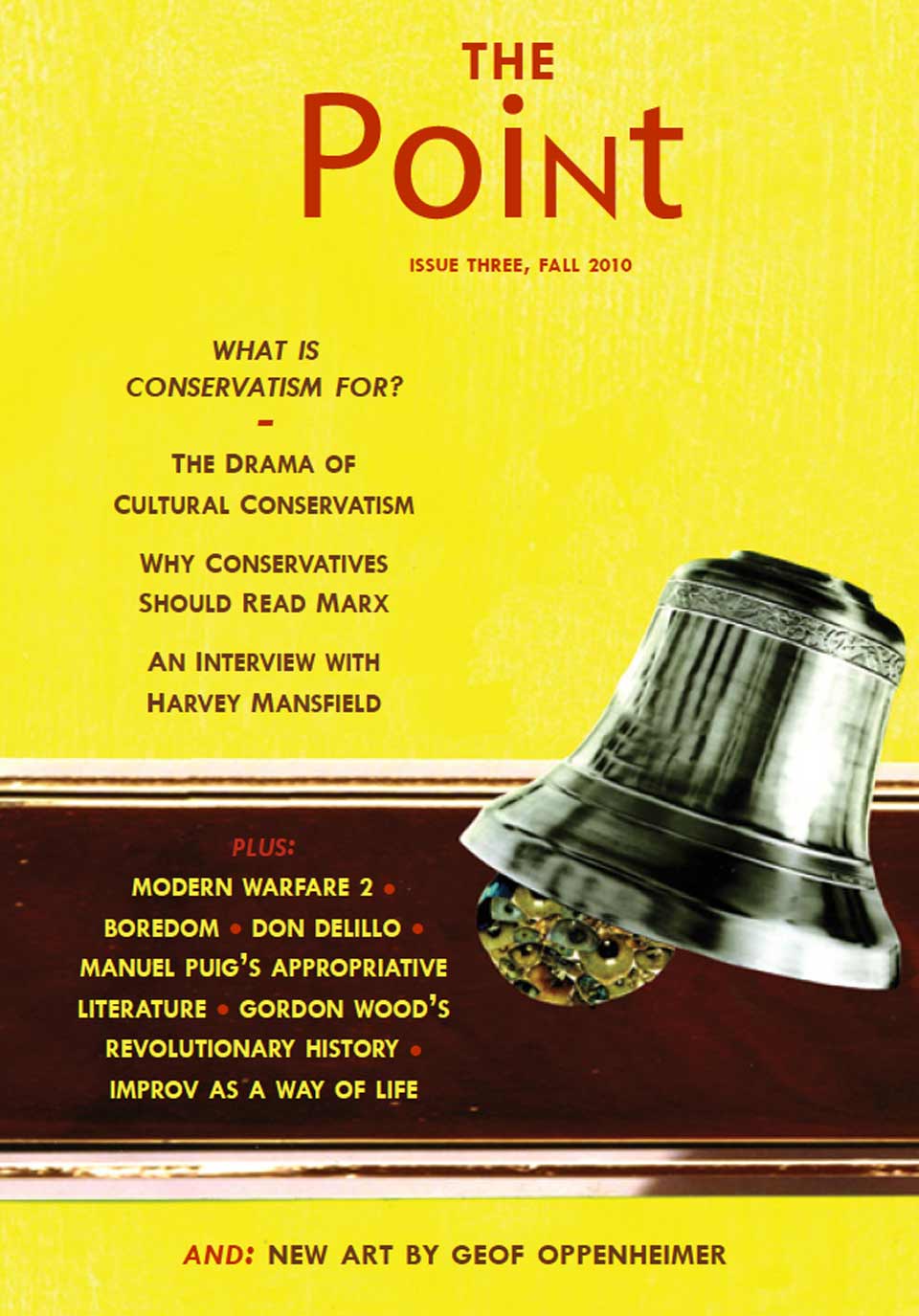If you have spent any significant amount of time in some kind of creative endeavor you have probably also spent a lot of time being […]
Wood uses history to take our myths out of the air and secure them, in somewhat humbled form, on a more solid foundation. By giving shape and structure to our idea of America, he allows us to choose well...
From Plato’s banishment of poetic mimesis from the ideal republic and Rousseau’s diatribe against the theater, to Georg Lukács’ condemnation of Expressionism and even Michael Fried’s recent work on absorption and theatricality—critics have long been suspicious of the relationship between the two.
In the midst of the James Frey affair—when Oprah was badgering the man on national television with how “duped” she felt, how he’d “betrayed” a nation of good readers by fabricating parts of his memoir—it was all fairly clear.
It’s February. Eleven p.m. The air is cold, glittery, almost amniotically thick. There are all sorts of archetypal New York touches to the street scene […]
The voice couldn’t have come from anyone older than twelve. There was no rasp, no pubescent pitchiness. “I’m gonna rape again!” It took me a […]
Harvey C. Mansfield is a professor of government and political philosophy at Harvard, where he has taught since 1962. He is the author or translator […]
An argument pitting two visions of liberalism against one another: one explicitly tied to Enlightenment ideas and directed to a transformation of society and man in pursuit of justice; the other in large part a response to some key Enlightenment ideas ...
In Issue 9 of n+1, the critic (and UCLA English professor) Mark McGurl describes the problem facing the contemporary novel this way: What should the […]
Every thriving political movement contains diverse and often warring elements bound together by little more than strength of feeling and the lure of power, so […]
This identification of being and beauty, which forms the backbone of “culture,” also hints at the historical font of conservatism.
My teaching incorporates ruptures and shock; I will lecture on unassigned readings; I will surprise rather than illuminate. I will light the fires of imagination; I will light real fires.
Ideally you first encounter Joe Frank by accident. Driving alone late at night, your radio set to Scan, you catch a distant rasp midsentence: “… […]
In 1914, Kafka wrote a story— unpublished in his lifetime—called “The Village Schoolmaster,” which chronicles the efforts of a local schoolmaster to document the appearance of a gigantic mole in a German village. The similarity between Kafka’s story and The White Ribbon, the recent film by Michael Haneke ...
Underworld was DeLillo’s last important novel, exposing the limitations of his art while crystallizing its lasting achievements.
